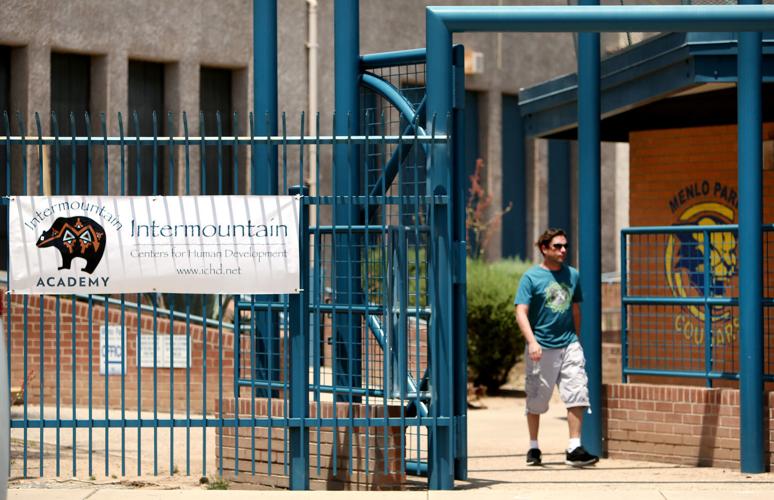In an effort to survive anticipated payment cuts, and an impending major transformation of the Medicaid system in Arizona, two more Tucson human services providers have consolidated their operations.
Intermountain Centers for Human Development has absorbed the assets and liabilities of Community Partners Inc. The two nonprofits both provide behavioral health care and more recently, medical care for people enrolled in the Arizona Health Care Cost Containment System or AHCCCS, Arizona’s Medicaid program.
The consolidation will allow the agencies to “remain viable” amid tightening financial pressures, including reductions to AHCCCS reimbursement rates, said Rose Lopez, president and CEO of Intermountain. She also became CEO of Community Partners under the consolidation, which took effect Aug. 31.
“As with every organization in Arizona and across the nation, there’s always that uncertainty of going forward as a smaller organization,” she said. “In order to survive, you gotta figure out, how are you going to provide a quality service at a rate that is potentially going to decrease 15 to 20 percent?”
Community Partners was previously known as CPSA, which for 20 years served as Pima County’s regional behavioral-health authority, or RBHA, contracting with AHCCCS to coordinate behavioral health coverage for its members. The nonprofit reinvented itself as a provider in 2015, when the Southern Arizona RBHA contract went to the for-profit Cenpatico Integrated Care, a subsidiary of publicly traded insurance giant Centene Corp., based in St. Louis.
Lopez said there’s not much overlap between the two providers’ work. Intermountain’s services focus primarily on children and families, while CPI works mostly with adults. She’s optimistic that patients will see improved services after the consolidation, which will allow both companies to continue operating under their own names.
Administrative operations between the two agencies will be consolidated, with about 10 to 15 layoffs expected in that area, but the number of program staff employees may actually increase, Lopez said.
The two providers care for 16,000 clients throughout Arizona and employ 825 people currently, Lopez said.
CONSOLIDATION IN THE FUTURE
Nationally, managed care companies and Medicaid programs that contract with them are looking to rein in costs, Lopez said. Tucson has many small providers, which are more costly to operate, and strategic consolidation is inevitable, she said.
“The national trend has been cutting the cost curve. As a result, you have to become bigger, you have to be able to create economies of scale,” she said. “You also have to be able to combine your resources so that you’re continuing to be innovative and growing.”
In early 2017, Community Partners acquired Assurance Health & Wellness. Last November, Intermountain acquired the Pinal Hispanic Council, a small Pinal County-based provider serving adults, with sites in Nogales and Cochise County, Lopez said. Pasadera Behavioral Health Network shut its doors in late 2016 amid mounting financial pressure.
In recent years local behavioral health agencies have said rate cuts and ever-evolving expectations from Cenpatico led to layoffs and confusion among providers over how they are paid for the work they do.
La Frontera Arizona has laid off 200 people in the last 18 months. COPE Community Services laid off 40 people last spring, also in response to continual fluctuations in payment structures that made it difficult to do any long-term planning, said CEO Rod Cook, previously chief financial officer for the agency.
“Our income is probably 60 percent of where it was five years ago,” Cook said. On top of it, “there seems to be less management of the system and less integration than there’s ever been before.”
AHCCCS undergoes TRANSFORMATION
Providers are also anticipating a squeeze from a massive transformation on the horizon, which will fundamentally change the RBHA structure that has covered behavioral health services in Arizona for decades.
Currently, most AHCCCS members are enrolled in two AHCCCS-contracted health plans: one for physical health care and a separate RBHA plan for behavioral health services. In recent years the RBHAs, including Cenpatico in Southern Arizona, started providing “integrated” coverage for adults with a diagnosis of serious mental illness. That means those patients’ physical and behavioral health services are covered by the same plan.
Starting Oct. 1, “integrated” coverage will now apply to almost all AHCCCS populations, including adults with general mental health needs, substance-use issues and children not in foster care. In Pima County, AHCCCS members will have the choice of three integrated health plans: Banner University Family Care, United Healthcare Community Plan and Arizona Complete Health, which is a new company emerging from the Oct. 1 merger of Cenpatico and Health Net of Arizona, both Centene-owned companies.
The changes affect about 1.5 million out of 1.8 million total AHCCCS members, but RBHAs like Cenpatico — soon to be known as Arizona Complete Health — will still provide integrated medical and behavioral health coverage for adults with serious mental illness, as well as some crisis services.
In response to an interview request, Arizona Complete Health spokeswoman Monica Coury referred the Star to the AHCCCS public information officer.
The impending transition has been stressful for many behavioral health patients in the area, especially coming on the heels of near-constant upheaval in the mental health field in recent years, since Cenpatico entered the market, said Clarke Romans, executive director of the National Alliance on Mental Illness Southern Arizona.
In theory, integrated health care that treats the brain like part of the body is a positive shift, preferable to isolating people with mental illness in their own segregated system, Romans said. But without an accompanying cultural change throughout the medical community, and broader society, Romans fears the stigma surrounding mental illness will present challenges for patients in the new system.
Widespread cultural changes to normalize mental illness will be necessary for integrated medical and behavioral care to succeed, he said, but that won’t happen overnight.
“We’ve been, frankly, fighting stigma surrounding mental illness for a very long time,” Romans said. “I’ve had doctors tell me they know more about the blood vessels in the ankle than they do about the brain. ... We all can help reduce stigma, but it just seems glacially slow.”
Local behavioral health leaders say the transition could be a positive change, but will result in near-term turmoil as they adjust to having three payers, instead of one RBHA.
In addition, switching to fee-for-service payments — in which providers bill for services after they are rendered, instead of getting an upfront “block” payment each month — will mean a delay in the first round of payments. That will be a tough gap to bridge for agencies already struggling financially, providers say.
“I think the only way to survive this is going to be large-scale consolidation of providers,” said Dan Ranieri, president and CEO of La Frontera Arizona.
The loss of some smaller companies, those that don’t have dialed-in, niche services to offer, is inevitable, he said.
“It’s not unlike big-box stores putting small businesses out of business,” he said. “The little mom-and-pop stores end up going out of business because they can’t compete on price and volume.”





